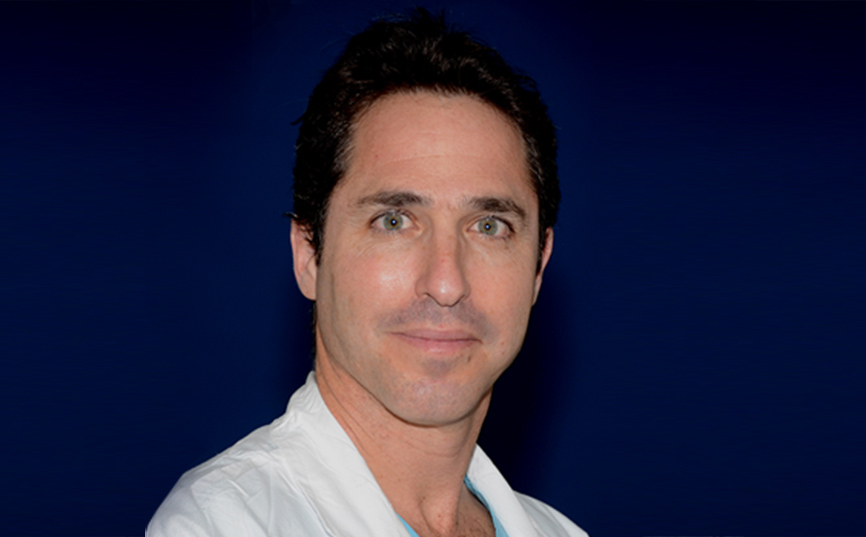An Unforgettable Learning Experience: Dr. Oz Gavish

1. Please provide an overview of your fellowship at your hospital and the role you played during your stay.
- Over the course of one month, I worked at Mount Sinai St. Luke's Roosevelt Hospital in Manhattan and at Winthrop University Hospital on Long Island under the supervision of Dr. Farr Nezhat. Dr. Nezhat is a well-known high-volume minimally-invasive gynecologic and oncologic surgeon. I accompanied him in all of his surgical activities, both laparoscopic and robotic-assisted. Additionally, I was an active participant in the gynecologic and gynecology-oncologic staff and academic meetings which often discussed patient management and outcome.
2. Describe how your fellowship opportunity has expanded your knowledge in your specific field.
- The observership included a great deal of exposure to a variety of advanced and minimally invasive gynecologic and oncologic operations, as well as numerous robotic-assisted surgeries. I was exposed to the most up-to-date techniques both for benign and malignant conditions. This broadened my vision on multidisciplinary approach to treat cases of endometriosis, a pelvic disease that can damage other abdominal organs than just the internal reproductive system.
3. What did you enjoy most about your fellowship opportunity?
- I mostly enjoyed the vast amount of observation time in different operating rooms of three different hospitals, observing the other surgeons that Dr. Nezhat collaborated with, learning diverse surgical techniques, and discussing alternative treatment options in unique and controversial clinical circumstances. I also enjoined the academic activity - ground rounds, tumor boards and staff meetings. This made me understand how medical education is incorporated at large university medical centers in the U.S.
4. Do you feel international medical relationships and fellowship programs are vital to the future of medicine and research?
- Absolutely. Being exposed to new ways of practicing medicine, whether it is research or the clinical treatment of patients, is enlightening and inspiring. The exchange of ideas is very important in the advancement of medicine and research and it opens opportunities for worldwide cooperation.
5. Explain the major differences between the Israeli health care system and the United States private healthcare systems in terms of your specific field.
-
No doubt that the United States is leading the world in terms of medical advances, research and innovations. Nevertheless, I found that the U.S. private healthcare system has many disadvantages; the most prominent among them being the unequal medical services available to the public and the role that cost-benefit analysis plays in medical decision making. Israel's public healthcare system also suffers many problems, but it is still a high quality and equal system. I truly believe in the public healthcare system, not only for accessibility and equality, but also for accountability since it has the unique capability of considering only practical and medical issues with no other irrelevant interests.
6. What were some of the challenges you faced while working at your hospital? What do you feel are the key issues and challenges in your field – not only in the Unites States and Israel, but worldwide?
- In recent years there is a constant and gradual shift from traditional classic surgeries towards minimally invasive procedures. We also face this challenge in our hospital in Israel, executing more types of surgeries by minimally invasive approach and incorporating the most up-to-date techniques. The challenge with this is implementing advanced minimally invasive techniques on growing amount of surgical indications that were once only considered for classical open surgeries. Adopting and assimilating the concept of minimally invasive access is fraught with many technical, conceptual and even psychological obstacles.
7. What are your future plans at Rabin Medical Center when you return to Israel?
- I plan to dedicate more time for medical education, mostly for residents, by implementing surgical simulation and a debriefing process for each operation. I plan to gain more experience in robotic-assisted surgeries and to become a part of the team that conducts these operations at RMC. I also plan to initiate collaboration with the general surgeons and to establish an endometriosis clinic that will offer advanced laparoscopic operations for severe cases of the gruesome disease.
8. Would you recommend this fellowship to your peers? Why or why not?
- Absolutely! This fellowship is a unique opportunity to learn from, and work with the best professionals in the field. Spending time with world-class surgeons contributes to our knowledge and our ability to deal with complex cases and surgical challenges. In addition to increasing our knowledge and experience, this unique opportunity allows the fellows to also familiarize themselves with the U.S. healthcare system.
Related Articles
A Word From Our Latest Rabin Medical Exchange Visiting Fellow: Dr. Nadav Sahar
Our latest Rabin Medical Exchange Visiting Fellow at the University of California San Diego’s Gastroenterology Department, Dr. Nadav Sahar took a moment to chat with us.
Interviewing Visiting Rabin Medical Exchange Fellow, Dr. Dana Yelin
Our latest Rabin Medical Visiting Exchange Fellow at Memorial Sloan Kettering Cancer Center in New York City for six months, Dr. Dana Yelin, took a moment to chat with us.
A Word From Our Latest Visiting Occupational Therapy Fellow Penina Weiss
I spent one month at the NYU Steinhardt School of Medicine in the occupational therapy department. During my stay, I explored up-to-date evidence-based practices in the fields of early mobilization, cognitive rehabilitation, mild cognitive impairments, driving rehabilitation, and vestibular rehabilitation.